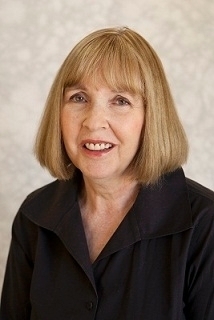News
Professor King Answers: GOP Strategy & Democratic Turnout Rates
February 23, 2016

From gvnext
Posted on February 23, 2016
As several Republican candidates for president continue to fight for votes in key primaries leading up to Super Tuesday, a Grand Valley political science professor said the remaining candidates might be staying in the race for different strategic reasons.
While Donald Trump maintains a strong lead, political science professor Erika King said both Marco Rubio and Ted Cruz, who essentially tied for second in the South Carolina primary, have no reason to drop out. Trump has failed to earn a majority of the votes, though that task would be difficult until a head-to-head matchup for the nomination emerges, King said.
(Hear King's entire interview here.)
King said Super Tuesday will be critical for low-performing candidates like John Kasich and Ben Carson, though strong performances in Michigan and Ohio would buoy a Kasich run.
Kasich may have alternative strategic reasons for staying in the race this long as well, King said.
"One strategic interest might be to say 'Gee, I would be a fine vice presidential candidate so I'm going to stay in the race to show I can still capture important parts of the country, like say, the state of Ohio,'" King said.
On the Democratic side, King said even though Clinton won the Nevada caucus and holds a significant lead in the delegate and superdelegate count, it doesn't mean the race is out of reach for Bernie Sanders. She said it's possible that delegates and superdelegates, who are free to change their minds, might do so if Sanders continues to win contests across the country. King noted that delegates are political participants and are often inclined to do what they think is best for the party.
"At the moment, the superdelegates are working to Clinton's advantage, but they may make some political calculus," King said. "She is definitely mounting her delegate total much faster than Sanders is."
King also noted that while Sanders has broad support from a significantly large portion of young voters, broad support doesn't generally tend to equal success in elections.
"One of the things we have to remember, whether we like it or not, one of the truths of American electoral turnout is that older individuals tend to vote more regularly and in larger percentages than the youngest demographic of voters," King said. "Sanders is overwhelmingly winning the 18- to 29-year-old demographic. They are turning out 80-plus percent to vote for him. He's generating a lot excitement, so the question will be, should he not get the nomination, what will happen with those voters? Will they move to Clinton? Or will they just stay home in the general election if Sanders doesn't get the nomination?"
For More Information Contact: Nate Hoekstra in University Communications - (616) 331-8138

